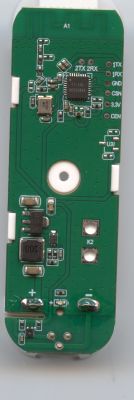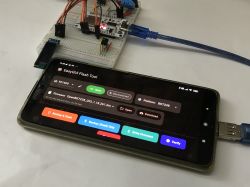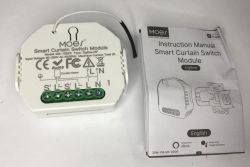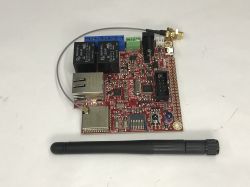I am trying to make a simple internet radio player. There is quite a lot on the internet about it. I, however, am struggling with the problem.
Environment: Arduino IDE 2.2.1
Board: WEMOS LOLIN32 LITE clone
Audio board: PCM5102A
Connections:
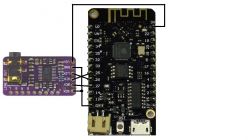
Audio library: https://github.com/schreibfaul1/ESP32-audioI2S/tree/master
Code compiles and uploads, but program crashes on line audio.connecttohost("http://stream.open.fm/378?type=.aac"); causing ESP to reboot:
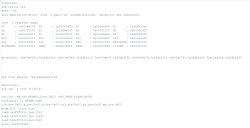
Any suggestions what could be wrong?
I tried another station, MP3 format, effect always the same. I have uploaded the program to a second ESP board, with the same result[/code].
Environment: Arduino IDE 2.2.1
Board: WEMOS LOLIN32 LITE clone
Audio board: PCM5102A
Connections:

Audio library: https://github.com/schreibfaul1/ESP32-audioI2S/tree/master
#include "Audio.h"
#include "WiFi.h"
#include "Arduino.h"
#define I2S_DOUT 25
#define I2S_BCLK 27
#define I2S_LRC 26
String ssid = "*********";
String password = "*******";
Audio audio;
void setup(){
Serial.begin(115200);
WiFi.disconnect();
WiFi.mode(WIFI_STA);
WiFi.begin(ssid.c_str(),password.c_str());
Serial.println("Connected");
Serial.println(WiFi.localIP());
Serial.print("RRSI: ");
Serial.println(WiFi.RSSI());
audio.setPinout(I2S_BCLK, I2S_LRC, I2S_DOUT);
audio.setVolume(15);
audio.connecttohost("http://stream.open.fm/378?type=.aac");
Serial.println ("Connect do stream");
}
void loop()
{
audio.loop();
}
Code compiles and uploads, but program crashes on line audio.connecttohost("http://stream.open.fm/378?type=.aac"); causing ESP to reboot:

Any suggestions what could be wrong?
I tried another station, MP3 format, effect always the same. I have uploaded the program to a second ESP board, with the same result[/code].



